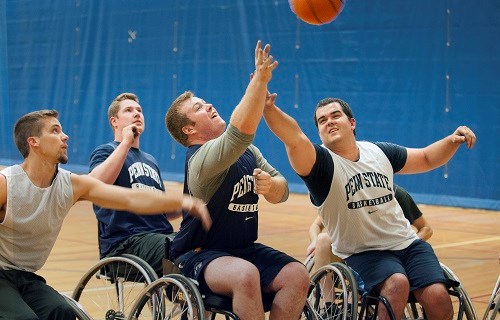New guide supports sports bodies embedding human rights
The role of international and local sports federations is central in securing the fundamental rights for all to practice physical education, physical activity and sport, as described in article 1 of the International Charter of Physical Education and Sport. Sports bodies should monitor that standards of equal opportunity and diversity are respected and promote the values of inclusion and tolerance within the sports environment.
With this in mind, the MSE Platform for Human Rights and the Institute for Human Rights and Business have developed a guide, entitled ‘Championing Human Rights in the Governance of Sports Bodies’. The aim is to supervise sports bodies in making crucial steps towards the protection of human rights in the sporting world.
The guide provides four steps that the sports bodies should follow in the governance of their organizations to promote and ensure the respect of human rights. Firstly, they have to make a public commitment to uphold human rights and to embed their protection into governance systems and processes. This of course also means to include them in the constitutionals documents and regulations of the organisations, to be sure that the respect of human rights is a central part of how the organisations develop their activities.
Secondly, it is essential that the sports bodies take into account the potential risks to human rights in their decision-making process, prioritizing those that create the most serious risk of negative impact. Thirdly, they have to be proactive in the protection and respect of human rights. They have to use their influence with stakeholders and business partners to prevent human rights violation related to their activities and provide access to a solution when is necessary.
The last step that the new guide advice sports bodies to follow is to communicate transparently how they are addressing risks to human rights through detailed reports, which could be a useful means for the organisation to demonstrate their initiatives in favour of the protection of human rights.
To sum up, the role that sport bodies play in the protection and the respect of human rights in the sport environment should not be taken for granted and the guide ‘Championing Human Rights in the Governance of Sport Bodies’ could be a relevant tool to ensure that those federations build human rights correctly in the governance of their organisations.
“We are all custodians of sporting movements and organizations that have the inherent potential to create positive change in the world. To realize this potential, it is essential that respect for human rights be embedded within governance and operations,” David Grevemberg, Chief Executive of the MSE Task Force on Sports Bodies, said in the press release of announcing the new guide.
More information
Download: Championing Human Rights in the Governance of Sports Bodies
Read more about IHRB and their MSE Platform here.






